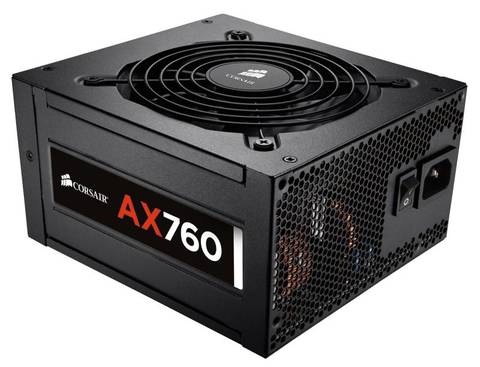PSU recommendations are tough because it is a fairly quickly shifting market (not as bad as some, but nonetheless). I have personally had good experiences with several Corsair models, Enermax, EVGA and a couple of others over the years, so how do you go about picking one again?
My lazy default is probably Corsair, but that is covered in other answers, and I occasionally want to look at other options and do my homework rather than assume that it is still the best choice. When doing so, I first check out a Power Supply calculator like this one to make sure I am beating my minimum required wattage by at least 20% - this gives me wiggle room should I need to add devices, or up the graphics card later, it also means that I am not over stressing the PSU even at full load.
Next, I will decide if I really want modular or not, because there is usually a bit of a premium there in terms of price. Then I will filter down to the ones on the list with the best efficiency rating within my wattage and budget range. This is all a little theoretical, so let's walk through it with actual numbers.
I guessed at a couple of things with your specs as a guideline and came up with a wattage requirement of 580W. Using my 20% rule above that rounds up to 700W as a minimum and I'll use 800W as a max to keep the resulting list smaller. Next, I plugged those requirements (along with the platinum 80 plus and modular requirement) into Newegg and got a list of just 8 candidates.
What I am hoping for now is for one (or more) of those candidates to be from brands I know. If so, then I just do some basic due diligence by reading a couple of reviews, and make my choice. In this case my results give me two such options:
Without a major price difference I would go for the Corsair, but the reviews on the EVGA look good, I've had decent experience with EVGA previously, and right now it is coming in at $40 cheaper than the 760 ($109 vs $149 after rebate) because it is on sale. That's enough for me, if I was buying the PSU right now, it would be the EVGA. Without the sale I would plump for the Corsair.
